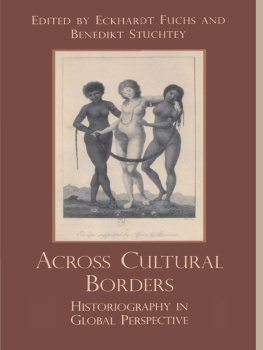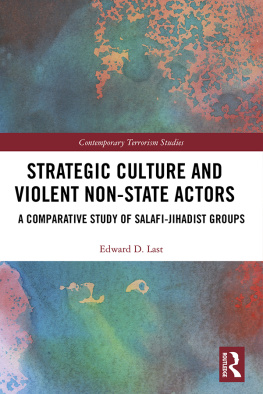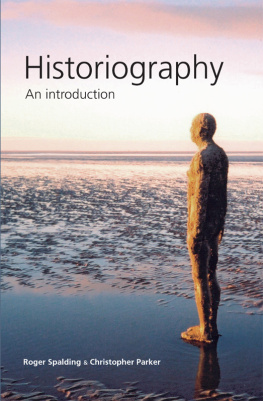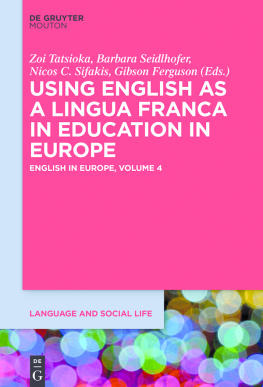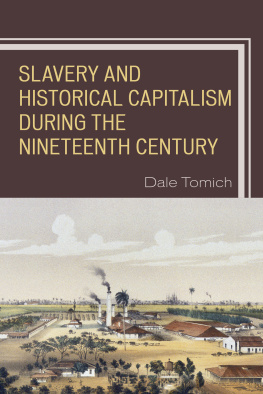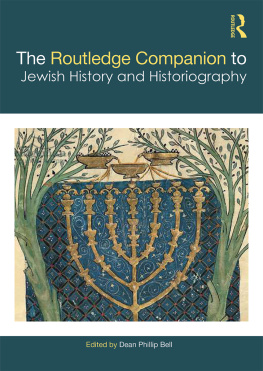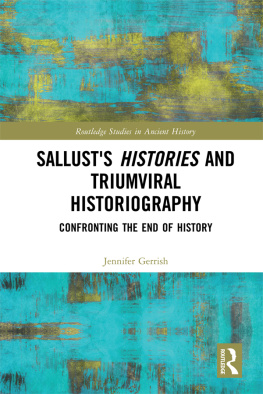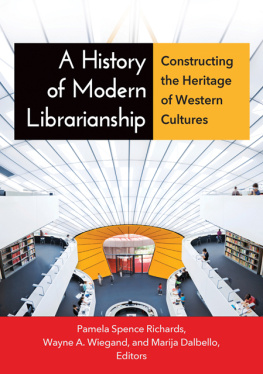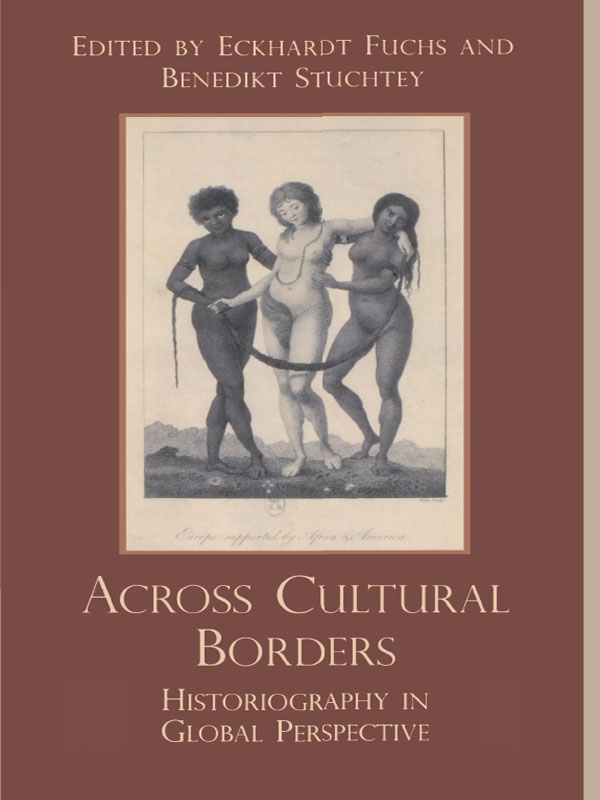T his book is the result of a conference, titled Science and Historical Discipline in a Transcultural Perspective, 18501950, held at the German Historical Institute (GHI) in Washington, D.C., in October 1997. It was sponsored by the German Historical Institutes in Washington and London and supported by the Institut fr Kultur-und Universalgeschichte e.V Leipzig. Without the interest of the directors of the two German Historical Institutes, Professors Detlef Junker and Peter Wende, respectively, the idea of this conference would not have materialized.
We also would like to acknowledge the help of Christa Brown and Barbel Thomas of the GHI Washington in arranging the conference. Daniel S. Mattern was a careful reader and editor of the manuscript. We also appreciate Sally Robertson and Q. Edward Wangs help in translating.
We thank all twenty-two participantsrepresenting four continentswho attended the original meeting. Although not all of the participants work is represented in this collection, additional experts on the subject were invited to contribute. The stimulating discussions during and after the conference as well as the advice of many participants were crucial for our understanding of the issues raised at the conference. Many of the ideas are incorporated in the chapters of this book. Special thanks go to Arif Dirlik, whose advice and critical comments encouraged us to publish this collection. Lastly, we express our gratitude to Susan McEachern and Jehanne Schweitzer of Rowman & Littlefield. This volume would not have appeared without their professional and efficient work.
About the Contributors
Arif Dirlik is a professor of history at the University of Oregon.
Andreas Eckert teaches in the Department of African Studies at the Humboldt University, Berlin.
Eckhardt Fuchs is an assistant professor in the Department of Education at the University of Mannheim.
Michael Gottlob is a historian living in Bergamo, Italy.
Maghan Keita is a professor of history at Villanova University.
Gabriele Lingelbach is an assistant professor in the History Department at the University of Trier.
Jochen Meissner is an assistant professor in the History Department at the University of Hamburg, Germany.
Matthias Middell is the research administrator of the Center for Advanced Studies at the University of Leipzig.
Jrn Rsen is the director of the Institute of Cultural Studies in Essen.
Benedikt Stuchtey is a research fellow at the German Historical Institute, London.
Stefan Tanaka is a professor of history at the University of California at San Diego.
Wang Hui is a member of the Institute of Literature of the Chinese Academy of Social Science, Beijing.
Q. Edward Wang is a professor of history at Rowan University.
The Authenticity of a Copy
Problems of Nineteenth-Century
Spanish-American Historiography
Jochen Meissner
Modern historical thought is a European phenomenon that later developed validity and became a force for change in the rest of the world.
For arrogance, for pride, there is no mercy.
B etween 1808 and 1824 almost all the former American colonies achieved political independence against Spain. This period did not mark the beginning of historical thought and writing in and about Latin America, but it was the beginning of a profound change in the intellectual climate of this region. Independence and the evolving of new republics gave rise to great expectations about a splendid future that would leave a colonial and as well a monarchic heritage far behind. But events in the following decades, up to the end of the nineteenth century, did not live up to these hopes. Internal conflicts and political, economic, and military interventions from the outside threatened the new states. The feeling of a widening gap between Latin America on the one hand and the industrializing northern European countries and the United States on the other grew throughout the region. The distance from those societies gave them some almost utopian traits in the political imaginary of Latin American intellectuals and turned them into role models for what the Latin American nations hoped to achieve. This is true for the economic as well as the political culture and for the development of science.
Although independence signifies a break in the history of Latin America, recent scholarship places more and more emphasis on the continuities between the late colonial and the early republican period. In the pigmentocracy of these multiethnic societies the Creole elementthat is, the offspring of the European immigrantsmanaged to hold a dominant position far beyond the end of the nineteenth century. Race remained the most important factor of social inequality. The intellectual elite was recruited almost exclusively from the male offspring of Creole families. The minds of these men were shaped and trained by educational institutions that had very similar structures, subjects, and teaching methodologies as their Spanish counterparts. European thoughtknown through voyages and/or studies in Europe as well as through the writings and many of the extant and newly formed personal tiesdetermined in many ways the intellectual horizon of the Latin American political and intellectual leaders.
But, unlike some European countries, the central scenery of nineteenth-century Spanish-American historiography was not academia. This may be one reason why a systematic study of the institutional history still has to be written. Throughout the century, in most areas of the regions academic writing and teaching of history was of minor importance. Therefore the first question is what do we define as the main subject of a study of nineteenth-century Spanish-American historiography? Or, in other words, where do we encounter the published leftovers of historical reflections? What are their material forms? Four major groups of historical publications have to be taken into account:
- Articles and letters about historical subjects in newspapers and journals. Very often, but not always, these are the published versions of conferences that had been given at learned societies, or of speeches that had commemorated a certain date or celebrated a special event. These periodicals contain as well the polemics that sometimes developed around them. Sarmiento (18111888), one of the towering Argentinean intellectuals of the nineteenth century, viewed the newspaper as the prime means of spreading knowledge and enlightenment throughout the country.
- Textbooks for the teaching of history at the college and university level.
- Independently published historical studies about special subjects.
- Books that tried to synthesize the historical knowledge in the form of dictionaries or manuals.
This meansto clarify the limits of what is said herethat the vast cosmos of mostly oral popular traditions are excluded from consideration. Because pure research about the infrastructure of publishing, printing, and book trade in the different Latin American countries is almost nonexistent, we know very little about the actual number of historical publications, circulation figures, and the social and geographical radiation of these publications. As even the literacy rates are difficult or impossible to establish, we will restrict our analysis to the statements of those who actively participated in the published discourses about history. Only one general statement can be made beyond that: History is produced for an audience that could be called a general public (in opposition to a more exclusively academic public). But this community consisted only of the 10 to 15 percentto give a rough and not very well-based guessof the total population that was able to read and belonged to the predominantly Creole upper strata. This culture was mostly based in the major citiespredominantly the capitals. In other words, although possibly affected by certain consequences of this historical discourse, the vast majority of the population was excluded from active or even passive participation in it.

